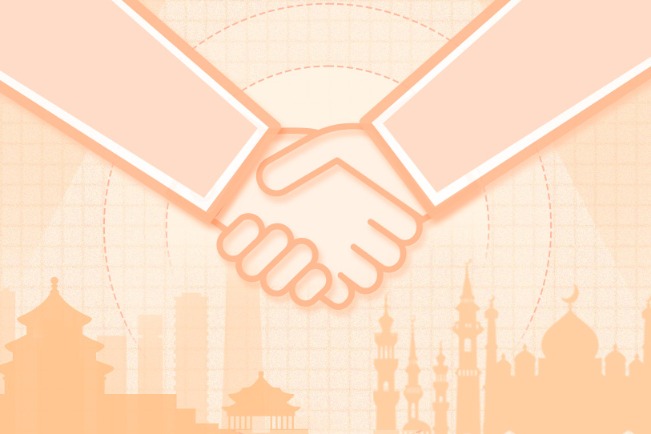Better trade ties in NEV sector boosting exports

China's recent efforts to bolster domestic automakers' global expansion and improve their risk management capabilities will reinforce the country's exports of new energy vehicles, contributing to the world's sustainable growth, said market watchers and business leaders on Wednesday.
The comment came after the Ministry of Commerce and eight other government branches, including the National Development and Reform Commission and the General Administration of Customs, jointly issued a guideline to support NEV trade cooperation in early December, further sustaining the growth of this fast-growing industry.
In addition to promoting standard internationalization and mutual recognition of qualifications, as well as fully leveraging the effectiveness of various free trade agreements, the Chinese government will encourage domestic automakers to conduct research and development cooperation activities in foreign countries, and strengthen cooperation with global companies to reach win-win results.
In an online statement released on Wednesday, the head of the department of foreign trade at the Ministry of Commerce, said the government will enhance collaboration with diverse countries in the realm of low-carbon advancement for NEVs.
These efforts aim to foster the robust and sustainable growth of trade cooperation in the NEV sector, contributing to the establishment of a novel growth paradigm and cutting carbon footprint in many parts of the world, said the Commerce Ministry official.
To reinforce the risk prevention abilities of its automakers, the Chinese government aims to optimize the use of both multilateral and bilateral frameworks. It will actively address issues that restrict foreign trade in the area of NEVs, according to the guideline.
China's auto exports surged 57.9 percent year-on-year to a record high of 4.91 million vehicles in 2023 as the country's automakers expanded their presence overseas, data from the Ministry of Industry and Information Technology showed.
The massive growth was propelled by a surge in the exports of NEVs, which soared 77.6 percent to more than 1.2 million units last year.
Chen Shihua, deputy secretary-general of the Beijing-based China Association of Automobile Manufacturers, said the government's favorable industrial and consumption-stimulating policies will further accelerate the upswing in China's auto sales in the domestic market as well as exports, especially in the field of NEV this year.
However, in recent years, China's NEVs have increasingly become the focus of international trade disputes. The European Union has commenced a countervailing duty investigation into China's NEVs.
"As China's NEV sector has evolved into a strong pillar supporting economic growth, it is imperative for the government to undertake a series of initiatives to foster international industrial cooperation and mitigate potential trade remedy risks," said Sun Fuquan, former vice-president of the Beijing-based Chinese Academy of Science and Technology for Development.
Many countries have promoted the electrification of vehicles in both private and public transportation. Some of them, such as Norway, Germany, the United Kingdom and the United States, have already established robust charging infrastructure systems and fostered scientific and technological innovation within the NEV sector, he said.
After seeing its sales grow by 8.8 percent year-on-year to 3.37 million vehicles in both home and global markets in 2023, China FAW Group Corp Ltd, a Changchun, Jilin province-headquartered automaker, said it now plans to export 158,000 vehicles this year.
The State-owned automaker plans to launch 13 types of electric vehicles under the Hongqi brand by 2025, both for domestic consumption as well as exports.
"Chinese electric vehicle manufacturers, skilled at maintaining cost efficiency through stable supply chains, are advancing rapidly, said Liu Yigong, vice-president of China FAW Group.
Many companies are currently focused on swiftly broadening their international presence, targeting Southeast Asia and Europe as their primary destinations for expanding the market of NEVs, he said.
Among the many NEV producers that have seen booming sales, Shenzhen, Guangdong province-based BYD became the world's leading seller of pure EVs in the fourth quarter of 2023. The company sold 526,409 electric cars, outpacing the sales figures of US EV giant Tesla Inc during the quarter.




